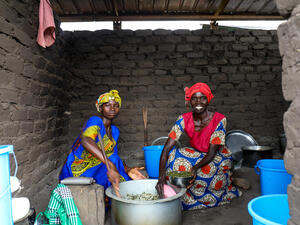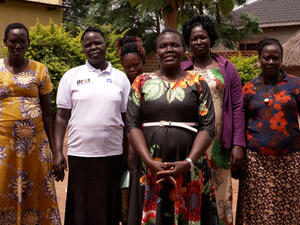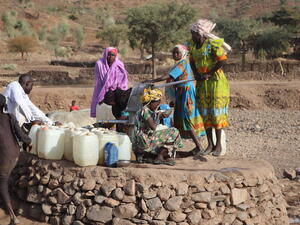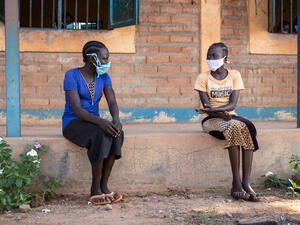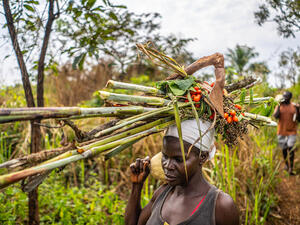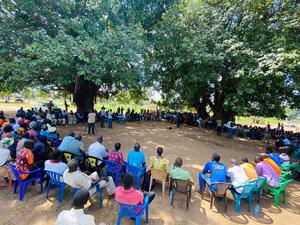Refugee voices resonate during South Sudan's milestone National Dialogue peace conference

Refugee voices resonate during South Sudan's milestone National Dialogue peace conference
More than 40 South Sudanese refugees and internally displaced South Sudanese (IDPs) lent their voices at the National Dialogue Conference on Peace which concluded on 17 November in Juba.
Over the past two weeks, the peace conference, titled ‘Come Lets Dialogue, Come Let’s Heal Our Nation’ brought together over 500 participants from all walks of life, including thought leaders, community leaders, political parties and citizens representing the country’s population, to share diverse perspectives and ideas on what the South Sudan of the future should look like.
Travel restrictions due to COVID-19 did not prevent refugee and displaced representatives from taking a seat at the table. To ensure representation, UNHCR, the UN Refugee Agency, organised internet access for a dozen participants to connect virtually from six asylum countries, including the Central African Republic, the Democratic Republic of Congo, Ethiopia, Kenya, Sudan and Uganda. A further 26 IDPs and returnees across South Sudan connected to the proceedings online, in close coordination with the National Dialogue Conference’s organizers. Many more watched the livestreamed discussions.
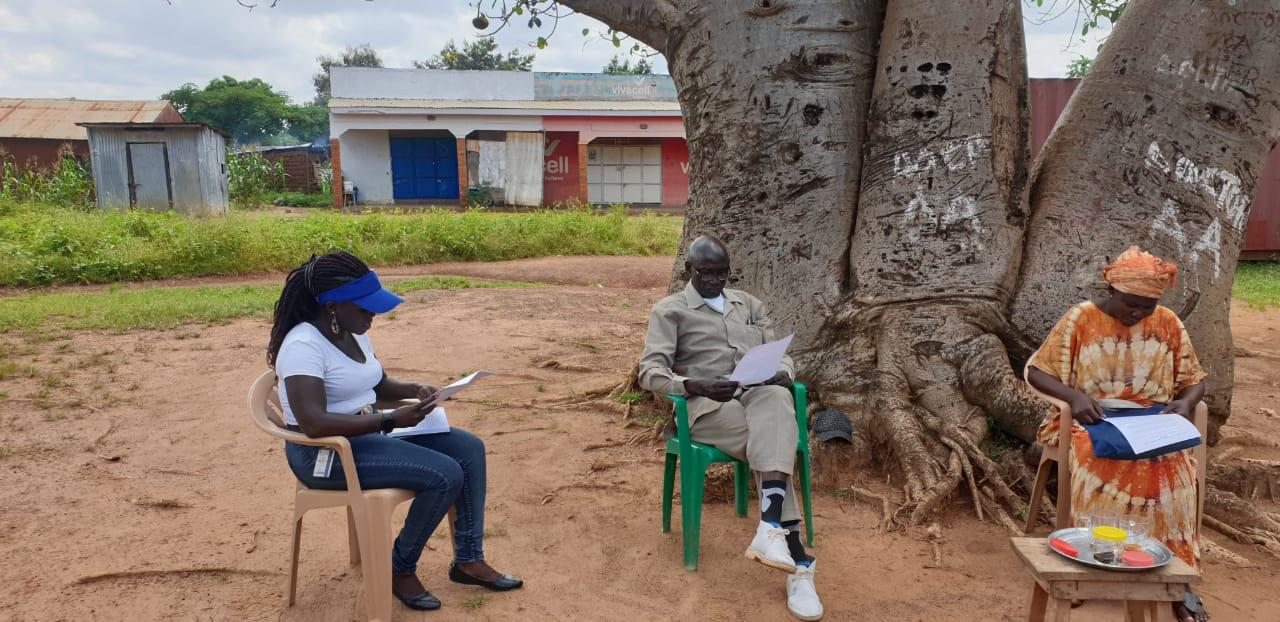
Anthony Dinko (centre) and Anney Ajoinye (right) prepare their comments for the National Dialogue in Yei, South Sudan.
“We have continuously called for refugees to be included in the peace process in South Sudan and we commend the authorities for heeding these calls,” said Arafat Jamal, UNHCR’s Representative in South Sudan, adding “refugees and IDPs have shown that they have a meaningful role in peace – their lived experience of conflict, displacement and as well as their overwhelming desire to return home brings an essential dimension to the deliberations.”
“After war, comes peace and then repatriation.”
During the conference, refugees and IDPs called for returns to areas of origin or alternative locations to rebuild their lives.
“After war, comes peace and then repatriation. Inclusivity and active participation of refugees and internally displaced persons has amplified our voice, especially on returning home,” noted Peter Barach, speaking on behalf of refugees in Kenya. “Narrating our stories not only sheds light on the cause of the war, but also helps to preserve their memory.”
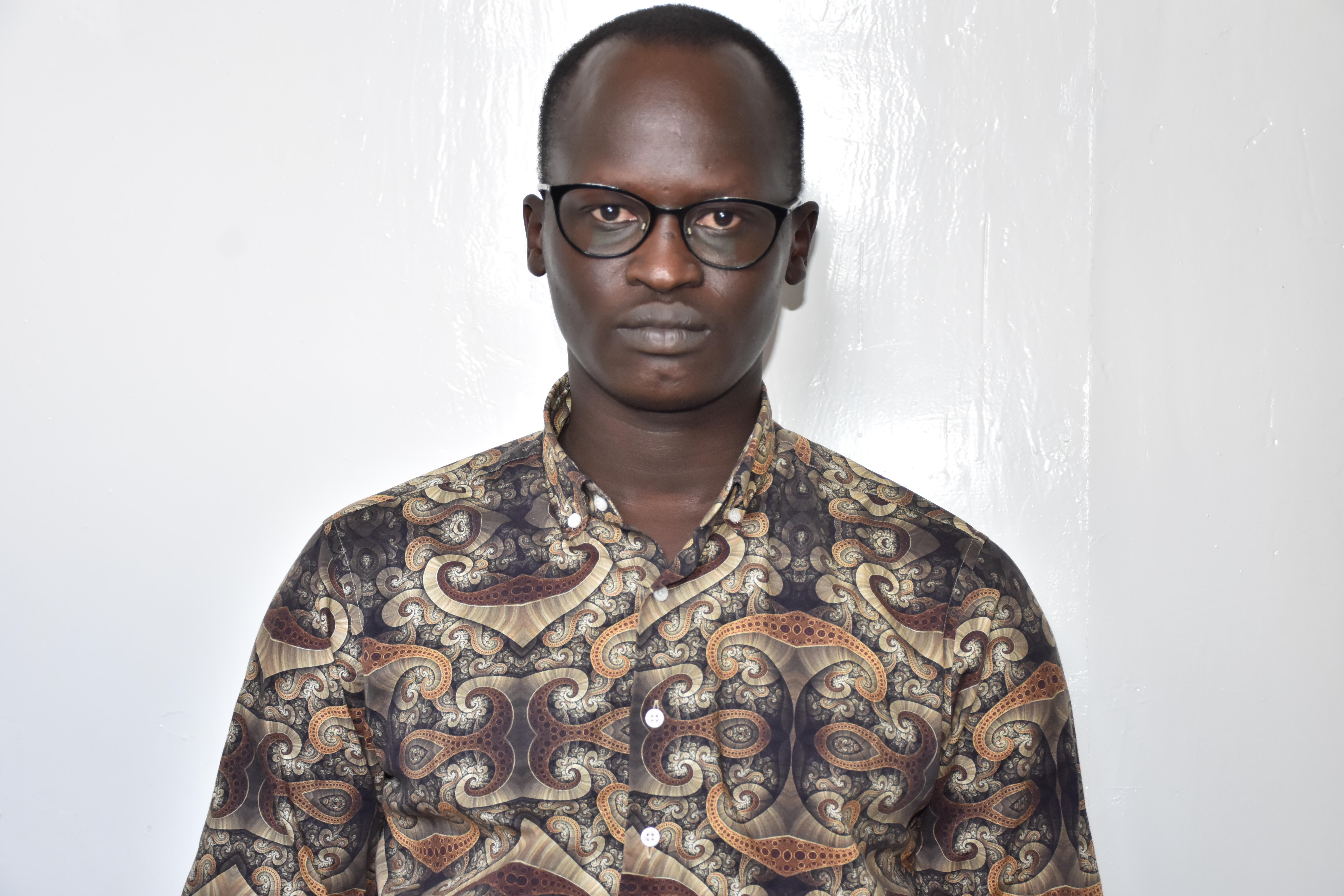
Peter Barach, a South Sudanese refugee living in Kenya, took part in the National Dialogue and welcomed the inclusion and active participation of displaced communities in the process.
Participants also called for broader inclusion of women, youth and persons with disabilities in governance, including in decision making; reforms that respect women’s rights to own, inherit and transfer land; housing, land and property restitution; economic stability and creation of employment opportunities, crucial for forcibly displaced people to regain dignity and give back to the communities they live in.
“It is my wish and prayer that after having taken your time to come together and shape our future with one spirit and hope as a nation, that your efforts contribute to securing the future for all South Sudanese,” said Dona Haney Wani, from Yei, addressing the dialogue on the final day on behalf of refugee returnees. “Let’s all endeavour to make the South Sudan we all yearn for become a reality. May we all internalize, implement and live the recommendations made here.”
“Let’s all endeavour to make the South Sudan we all yearn for become a reality.”
Woven into the fabric of the conference’s final communique, are the views and recommendations of the refugees, internally displaced persons (IDPs) and returnees on the economy, governance, security and social cohesion.
The Global Compact for Refugees calls for refugees to be included in peace processes and South Sudan has just shown that doing so is not only possible but critical for the future of their country.
Currently, there are some 2.2 million South Sudanese refugees hosted in neighbouring countries and another 1.6 million people displaced within the country.


